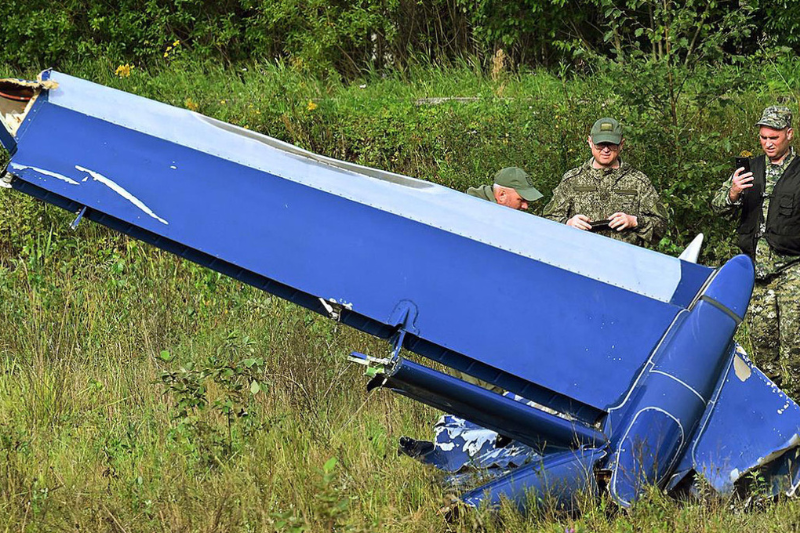
Russia Declines International Probe into Prigozhin Plane Crash
The aftermath of the fatal crash involving the Brazilian-made Embraer Legacy 600 that claimed the life of Yevgeny Prigozhin, the chief of Wagner Group, has taken a perplexing turn. According to a statement from the Brazilian agency, Russia has told the Brazilian agency responsible for aircraft investigations that it will not carry out an international inquiry into the disaster at this time.
In addition to Prigozhin, two top lieutenants from the Wagner Group, and four bodyguards, the crash, which happened north of Moscow, also claimed the lives of other people. Prigozhin staged a brief rebellion against the Russian defence establishment just two months prior to this episode, posing a substantial challenge to President Vladimir Putin’s long-standing rule.
The Russian-led inquiry would be performed in accordance with international laws, and the Brazilian Centre for Research and Prevention of Aeronautical Accidents (CENIPA) had declared its willingness to participate. Although it is not required to follow international regulations, Russia’s aviation authority has turned down this offer. Concerns have been raised by the refusal, particularly in light of the Western governments’ suspicions that the Kremlin may have been involved in the disaster. Despite the Kremlin’s denials, the U.S. and others believe there was foul play involved in the incident.
Keep Reading
Air Brigadier Marcelo Moreno, the leader of CENIPA, emphasised that although Russia’s support of an international probe is not required, it is advised for openness. Despite Russia’s current position, CENIPA is still willing to attend if invited.
Aviation safety and investigation experts have voiced their dissatisfaction with Russia’s choice. An internal Russian inquiry without Brazil’s involvement, according to John Cox, would be less transparent. He voiced worry about how it would affect the investigation’s credibility.
Russia will not launch a probe in accordance with the international regulations contained in “Annex 13” of the Convention on International Civil Aviation, according to the Interstate Aviation Committee – Commission on Accident probe’s (IAC) response, which was received on Tuesday. The investigative process will become more difficult to conduct transparently and impartially as a result of this action.
The situation at hand has highlighted the value of global collaboration in air crash investigations. By encouraging technological cooperation across political boundaries without placing blame, “Annex 13” has been crucial in improving aviation safety. Although its efficiency has been universally acknowledged, the current circumstance calls into question its reputation.
As the inquiry continues, the emphasis is still on averting further mishaps and dealing with the difficulties in gathering data brought on by Russian sanctions and Moscow’s resistance to outside scrutiny. The results of this inquiry will probably have a significant impact on how transparent and reliable such systems are going to be in the future.




